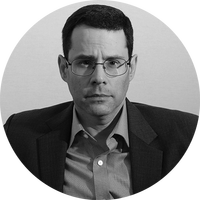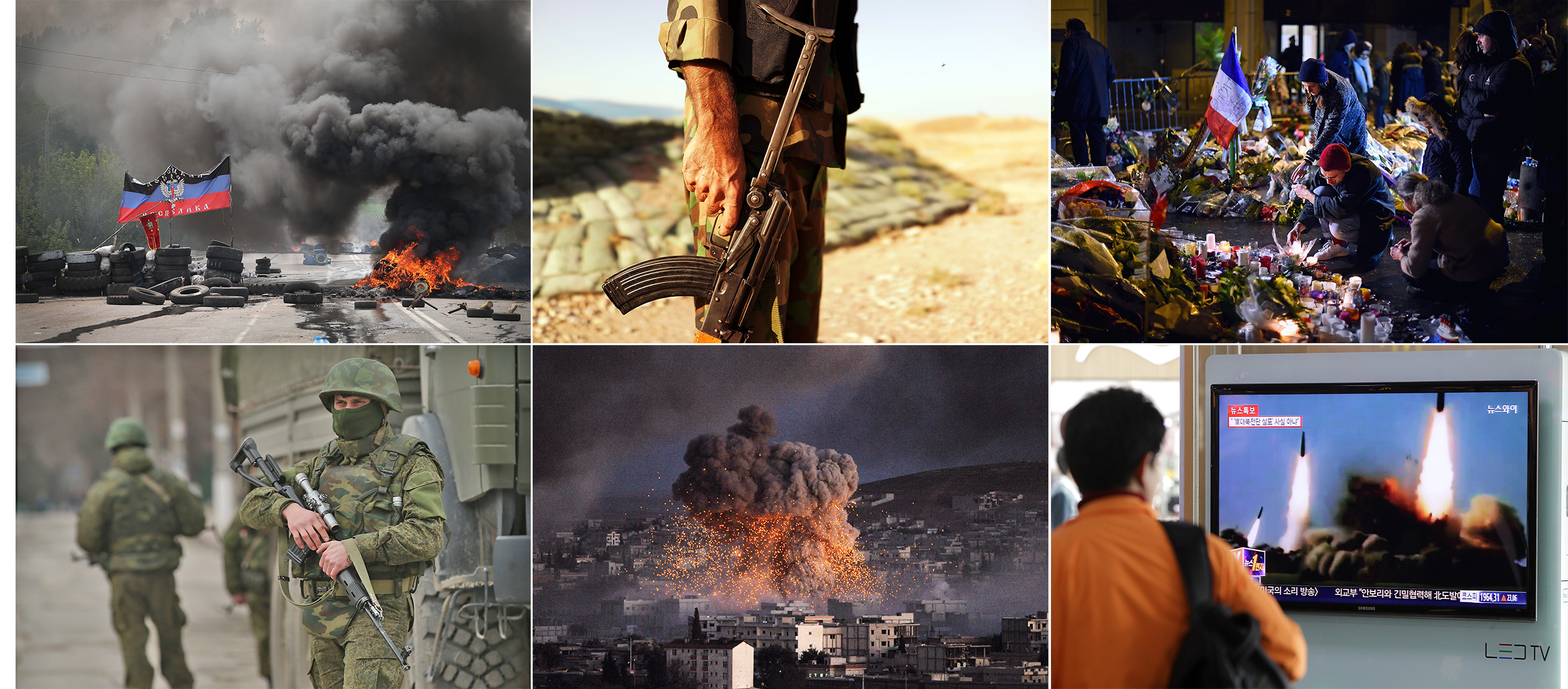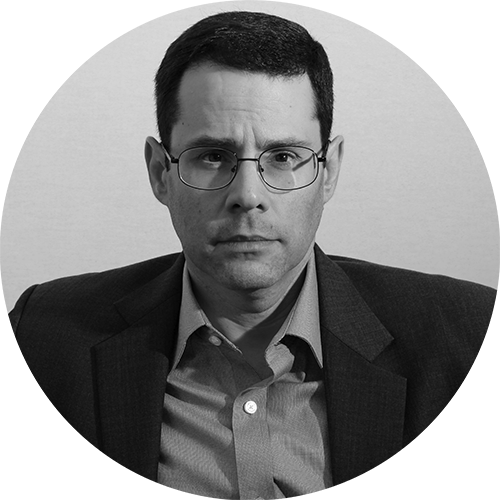America cannot retreat from our evermore perilous world
Because things won't get better without our help


A free daily email with the biggest news stories of the day – and the best features from TheWeek.com
You are now subscribed
Your newsletter sign-up was successful
The barbaric murder of a captured Jordanian air force pilot by ISIS has shocked a global public that is otherwise becoming numb to such atrocities. And sadly, the horrific burning alive of Muath al-Kasasbeh is just one more grim piece of evidence that our world is getting vastly more dangerous every day.
The head of America's military intelligence organization alluded to as much in testimony to Congress this week. He warned that ISIS is spreading beyond Iraq and Syria, and is becoming increasingly influential in Libya; that Russia is adding new missiles to its nuclear forces; and that America's technological edge is threatened by Chinese cybertheft, among other dangers.
Meanwhile, as a new Russian-backed offensive in eastern Ukraine gains territory, the U.S. general in charge of NATO is pushing for Washington to give arms to Kiev, in the hopes of stopping the Moscow-backed insurgents. This comes mere weeks after the Charlie Hebdo and kosher supermarket massacres in Paris, proving yet again that we all face a deadly threat at home.
The Week
Escape your echo chamber. Get the facts behind the news, plus analysis from multiple perspectives.

Sign up for The Week's Free Newsletters
From our morning news briefing to a weekly Good News Newsletter, get the best of The Week delivered directly to your inbox.
From our morning news briefing to a weekly Good News Newsletter, get the best of The Week delivered directly to your inbox.
China is developing sophisticated weapons like anti-ship ballistic missiles, stealth fighters, and aircraft carriers, all of which will make it harder for America to keep playing its traditional military role in Asia. There's the ongoing North Korean nuclear crisis, through which the hermit regime in Pyongyang is getting closer to weaponizing a nuclear bomb to fit on top of a ballistic missile. And of course, there's the specter of an Iranian nuclear bomb, which the Israelis warn us becomes evermore likely the longer the Obama administration agrees to negotiations with the mullahs.
These terrible and worrisome things are all happening far away from America's shores. And after close to 15 years of combat, Americans understandably wanted nothing more than to bring back our men and women and let the rest of the world take care of itself. But our computer screens and television sets seem to show as much mayhem and destruction as before, maybe even more.
Things aren't getting better. They're getting worse. And they won't get better by themselves anytime soon.
How confident are we that we won't be affected by all this mayhem? By an ISIS that lets al Qaeda regroup, by a China that asserts its will in East Asia, by a Russia that dominates part of Eastern Europe, by an Iran with a nuclear bomb? Do we still think those two big oceans protect us the way they did in the 1930s? The horrific attacks of September 11 showed us the fallacy of that kind of thinking, even if we tried to pull up the drawbridges and stay home.
A free daily email with the biggest news stories of the day – and the best features from TheWeek.com
The Obama administration seems stuck in the first three stages of grief all at the same time: denial, anger, and bargaining. None of which actually helps with the problems. What many Americans (Democrats included) fear is that the president is implicitly moving towards the fifth stage, acceptance. Acceptance that America can't change the world, and therefore should be cautious about how much it tries to.
By 2016, our world of trouble may well be the most important issue debated by the presidential candidates. As the world's most globalized and powerful nation, America can't sit on the sidelines. In some way or another, we will be affected or drawn in. By trying to avoid risk early on, we are incurring greater risk down the road. Acting decisively to support beleaguered states fighting the forces of evil and aggression may be uncomfortable and run the danger of getting us more involved, but avoiding the problem has not led to order and stability.
Worst of all, we may be approaching another red line, like the one of 9/11 or December 7, and not even know it. Then, all the debate will become academic, and we'll be forced into reacting to something that we might have been able to avoid. History is full of lessons like that, and so far, our track record is not great.
Michael Auslin is the author of The End of the Asian Century: War, Stagnation, and the Risks to the World's Most Dynamic Region, which will be published in January.
-
 ‘Restaurateurs have become millionaires’
‘Restaurateurs have become millionaires’Instant Opinion Opinion, comment and editorials of the day
-
 Earth is rapidly approaching a ‘hothouse’ trajectory of warming
Earth is rapidly approaching a ‘hothouse’ trajectory of warmingThe explainer It may become impossible to fix
-
 Health insurance: Premiums soar as ACA subsidies end
Health insurance: Premiums soar as ACA subsidies endFeature 1.4 million people have dropped coverage
-
 'Once the best in the Middle East,' Beirut hospital pleads for fuel as it faces shutdown
'Once the best in the Middle East,' Beirut hospital pleads for fuel as it faces shutdownSpeed Read
-
 Israeli airstrikes kill senior Hamas figures
Israeli airstrikes kill senior Hamas figuresSpeed Read
-
 An anti-vax conspiracy theory is apparently making anti-maskers consider masking up, social distancing
An anti-vax conspiracy theory is apparently making anti-maskers consider masking up, social distancingSpeed Read
-
 Fighting between Israel and Hamas intensifies, with dozens dead
Fighting between Israel and Hamas intensifies, with dozens deadSpeed Read
-
 United States shares 'serious concerns' with Israel over planned evictions
United States shares 'serious concerns' with Israel over planned evictionsSpeed Read
-
 Police raid in Rio de Janeiro favela leaves at least 25 dead
Police raid in Rio de Janeiro favela leaves at least 25 deadSpeed Read
-
 Derek Chauvin's attorney files motion for new trial
Derek Chauvin's attorney files motion for new trialSpeed Read
-
 At least 20 dead after Mexico City commuter train splits in overpass collapse
At least 20 dead after Mexico City commuter train splits in overpass collapseSpeed Read
